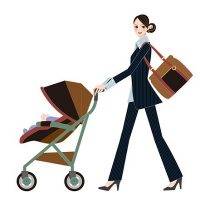October 17, 2016
Freelancers are thriving on both sides of the pond, but have politicians noticed? 0
 Two new reports that highlight the growth of the freelance and self-employed workforce in both the UK and US also suggest that politicians and civil servants in both countries have little real understanding about the changing nature of work. According to the UK government’s regular Business Population Estimates report, the number of private sector businesses is at an all-time high, around 5.5 million, up by a million since 2010. Yet the report fails to distinguish between freelancers, the self-employed and traditional SMEs, except to omit firms that are too small to pay VAT from its numbers. The trade association IPSE estimates that there are some 4.6 million self-employed and freelance workers in the UK, yet the BPE report does not account for the overlap in numbers. Even within the BPE’s own numbers, there are suggestions that its conclusions do not match the data. The annual growth in non-employing businesses outstripped those who employed others by a factor of 6:1 and 76 percent of businesses did not employ anyone aside from the owner. And the growth comes despite the fact that the self-employed in the UK now earn marginally less than they did 20 years ago.
Two new reports that highlight the growth of the freelance and self-employed workforce in both the UK and US also suggest that politicians and civil servants in both countries have little real understanding about the changing nature of work. According to the UK government’s regular Business Population Estimates report, the number of private sector businesses is at an all-time high, around 5.5 million, up by a million since 2010. Yet the report fails to distinguish between freelancers, the self-employed and traditional SMEs, except to omit firms that are too small to pay VAT from its numbers. The trade association IPSE estimates that there are some 4.6 million self-employed and freelance workers in the UK, yet the BPE report does not account for the overlap in numbers. Even within the BPE’s own numbers, there are suggestions that its conclusions do not match the data. The annual growth in non-employing businesses outstripped those who employed others by a factor of 6:1 and 76 percent of businesses did not employ anyone aside from the owner. And the growth comes despite the fact that the self-employed in the UK now earn marginally less than they did 20 years ago.


















 While the number of independent workers in the US gig economy is expected to grow to 54 million people by 2020 and some 40 percent of workers have already experienced it according to
While the number of independent workers in the US gig economy is expected to grow to 54 million people by 2020 and some 40 percent of workers have already experienced it according to 




 A series of reports published in the past few days highlight the challenges faced by Britain’s disabled workers. The studies claim separately that disabled workers are keen to work but are less likely to be in employment and may be hiding disabilities from employers, are paid less when they are in work and that many employers do not feel they are well equipped to deal with the needs of disabled staff. The first study from Reed in Partnership and Disability Rights UK found that one in ten employers do not feel able to support a disabled employee. Meanwhile research from the Equality and Human Rights Commission (EHRC) found that employees who experience mental ill-health earn up to 42 per cent less than colleagues. A third report from Citizen’s Advice found that 40 percent of disabled people would like to work but can’t find a job. And finally a report from RIDI claims that many people applying for jobs may be hiding their disability from employers.
A series of reports published in the past few days highlight the challenges faced by Britain’s disabled workers. The studies claim separately that disabled workers are keen to work but are less likely to be in employment and may be hiding disabilities from employers, are paid less when they are in work and that many employers do not feel they are well equipped to deal with the needs of disabled staff. The first study from Reed in Partnership and Disability Rights UK found that one in ten employers do not feel able to support a disabled employee. Meanwhile research from the Equality and Human Rights Commission (EHRC) found that employees who experience mental ill-health earn up to 42 per cent less than colleagues. A third report from Citizen’s Advice found that 40 percent of disabled people would like to work but can’t find a job. And finally a report from RIDI claims that many people applying for jobs may be hiding their disability from employers.
 It is no longer a question of whether one of the world’s major economies will introduce a universal basic income for all of its citizens, but when. Over the weekend, the leader of the UK’s Labour Party Jeremy Corbyn announced in
It is no longer a question of whether one of the world’s major economies will introduce a universal basic income for all of its citizens, but when. Over the weekend, the leader of the UK’s Labour Party Jeremy Corbyn announced in 

















September 27, 2016
Businesses failing to look at workplace effectiveness in the right way 0
by Tim Oldman • Comment, Facilities management, Property, Workplace design
More →